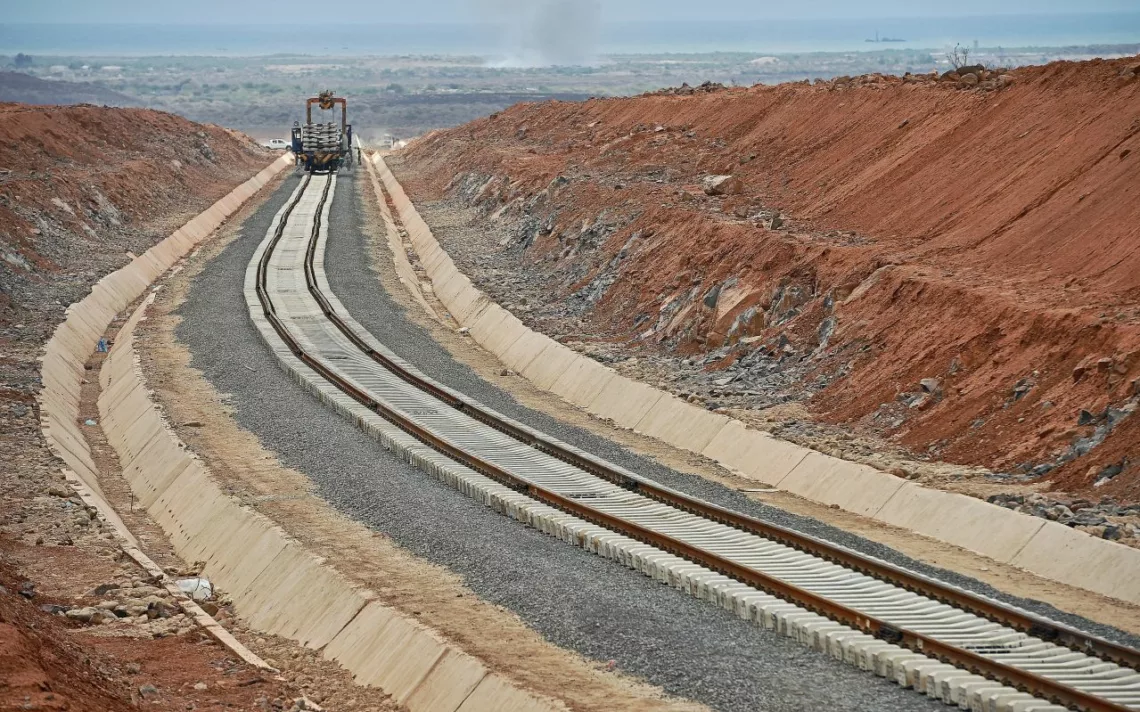President Muhammadu Buhari’s government has invested time and funds into revitalising the rail systems in Nigeria with billions of dollars already been invested and also need to fully develop the system.
However, the rail systems have not been fully effective as expected and in this article, the positive and the not so successful of the rail systems will be examined.
The Abuja-Kaduna, 186-kilometre rail project, which was one of the first projects successful executed saw Nigeria borrowing $500 million from China.
Also another $1.3 billion was borrowed from from China the 156-kilometer Lagos-Ibadan rail projects.
These two projects opened the doors for proper rail modernisation in Nigeria and offered escape route for travellers, who have been traumatized on the Abuja-Kaduna express way.
The Abuja-Kaduna expressway was described by travellers as a death trap, owing to the security risks associated with the route.
Abduction and killing became routine, as travellers lose lives and property almost on a daily basis when armed gangs who operate at will attack, with commuters been targeted repeatedly by gunmen who abduct victims for ransom and, in some cases, kill them.
These were the situation at the road up until the Abuja-Kaduna train services came into been and offered succor and safety to the travellers.
Also, in the south-western, the Lagos-Ibadan train services also came to ease transportation for travellers in the region.
The double-track standard gauge rail connects Lagos to Abeokuta in Ogun and Ibadan, Oyo state.
The rail lines were built to decongest the Lagos-Ibadan highway and the Apapa seaports by moving cargo across cities through rail.
Though, this has not been properly actualised.
However, beyond providing safety and comfort for travellers, the railway lines have improved business and trade between cities in Nigeria.
It is also contributing to the economic development of the country.
Due to the increasing number of Nigerians buying train tickets, it now serves as an alternative means of revenue generation for the government.
Regardless of the comfort that train travel has brought to travellers, some have raised concerns over certain aspects of the service.
The recent hike in prices of tickets have become a cause for concern.
A passenger, Kola Idowo, said the cost of train travel was a major challenge, as one will require to pay about twice the cost of travelling by road.
For the Abuja-Kaduna train services (AKTS), from Idu to Rigasa, the price has been pegged at N9,000 for 24-seater coaches, N6,500 for 56 and 68-seater coaches and N3,600 for 88-seater coaches, while minors will pay N3,000 flat.
This is against the initial price, which include is from Idu to Rigasa, the price was been pegged at N7,000 for 24-seater coaches, N5,000 for 56 and 68-seater coaches and between N2,600 to N3,000 for 88-seater coaches depending on the time, while minors paid N1,500 Some others also complain about the distance of the terminal station at Rigasa.
Adamu Sule said the distance between the terminal and most locations in Southern Kaduna made train travel a tiring experience and suggested that passengers be allowed to alight at the Kakau station.
He said, “Imagine you pass your location and then you start coming back again, it doesn’t make sense. It is hectic. By the time you find your way from the train station to your base, it is like moving from Abuja by car to Kaduna.”
For Oluwa Femi, he said, “The only thing I enjoy about the rail system is just the safety. If not for safety, nothing will bring me here. The time you take from town to this place is enough for you to pick a taxi that will take you down to Kaduna.”
Another passenger, on the Lagos-Ibadan route, Ramatu Ajayi, said the coaches were often overcrowded, with some passengers standing throughout the trip.
She said, “I have used this train three times and on two occasions, three or four people are squeezed into a space that is meant for just two. Sometimes, people stand. It usually is not nice.”
Rail Projects Likely To Stop
Sometimes, earlier 2022, the then minister of transportation, Rotimi Amaechi, said the Chinese loans have stopped coming as China has said no more loan.
This automatically means problems for ongoing rail projects like Kaduna to Kano, Port Harcourt to Maiduguri and others since the Chinese loans are largely responsible for all rail projects in the country.
This was the conclusion drawn by transport industry stakeholders, development economists and infrastructure finance experts who reacted to the disclosure Amaechi.
Some of the experts expressed worry over the new stance by the Chinese government on loans for development of Nigeria’s infrastructure, saying the move will further impoverish the common man.
They argued that the move would not only add to the number of abandoned projects across the country, but would also aggravate socio-economic challenges such as unemployment and diminishing living standards confronting Nigerians.
On the Kaduna to Kano project, the federal government said about $318million had been paid to the contractors, China Civil Engineering Construction Company (CCECC) with the hope that by the time China finally approves the $1.2billion loan requested for the construction of the standard gauge line, the work would have reached an appreciable stage.
Industry experts have, however, applauded China’s decision to reduce funding of the Nigeria Railway Modernisation project, describing it as the best approach for the country to fully develop its railway system.
The chief executive officer, African Railway Round Table, Mr. Olawale Rasheed, said although the minister has good intentions for the railway subsector, the approach to building the railway was not in line with best practice and was unsustainable, adding that the minister was not doing the right thing as regards the railway modernisation project.
According to him, the best approach is private sector involvement in the design, construction and operation of the railway.
“Railway operation is a business and not a development project. The Nigerian government must treat it as such if it must make any meaningful progress in the railway modernisation project,” he said.
Olawale noted that Egypt, Tanzania and Senegal have the most developed railway systems in Africa, which uses electric trains.
He observed that the rail projects were not funded by the Chinese but private sector investors.
He said: “For instance, Brazilian government invited its private sector to identify the railway project they would want to invest in and today, there are about 41 ongoing railway projects in the country. So also in Tanzania, the government partnered with a financial institution to raise $1billion from the private sector to construct their railway.”
On his part, chief executive officer of Bethlehem Rail and chairman of federal government committee to unbundle the Nigeria Railway Corporation (NRC) Rowland Ataguba, said he is not surprised at the withdrawal of China from funding Nigeria railway projects as the country had been re-evaluating its approach to Africa and its engagements across the continent.
According to him, many of the loans China has been granting to the railway sector have been what you may call cheap (but ultimately expensive) or “political loans” as the loans lack sound business cases.





